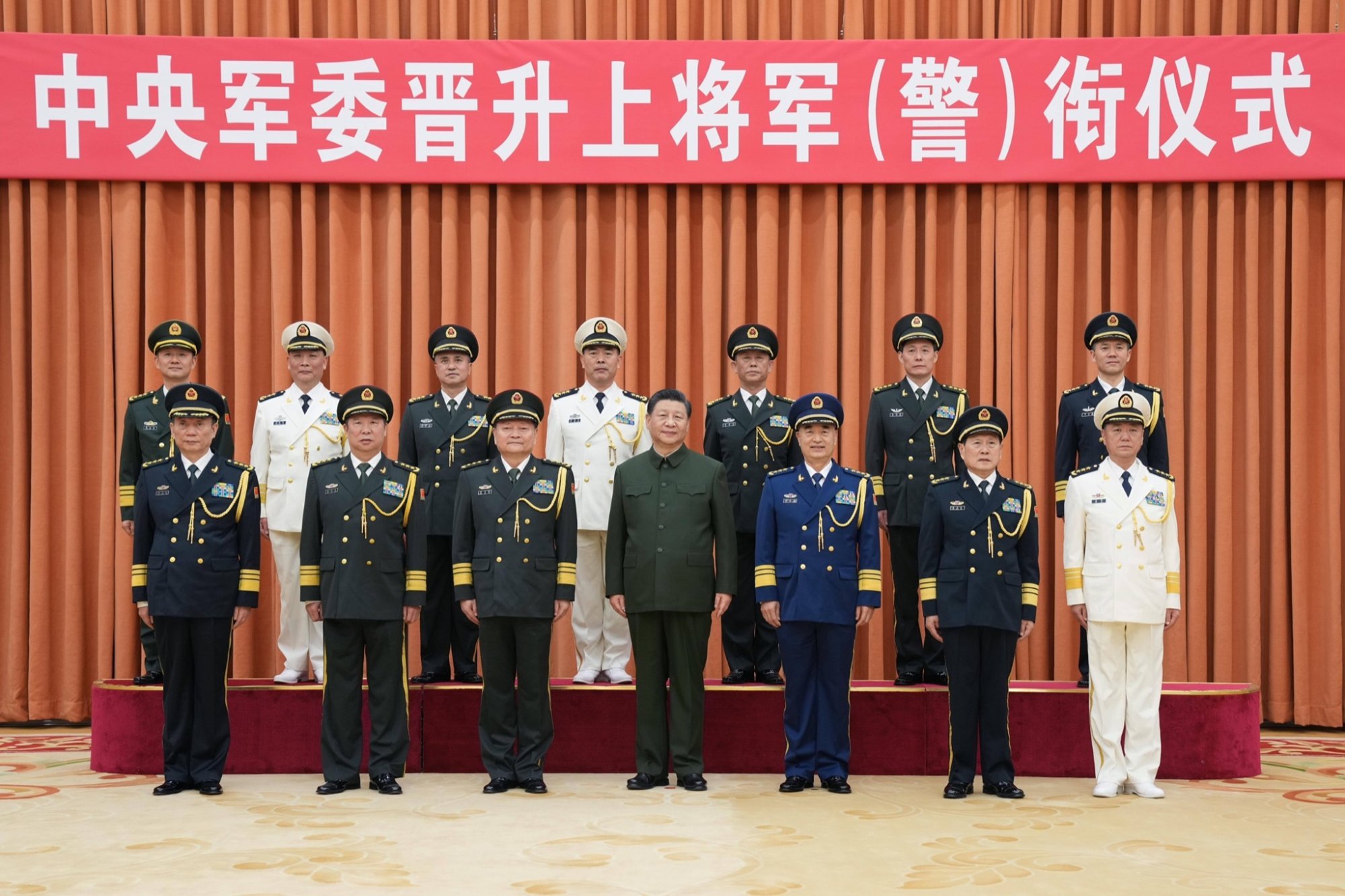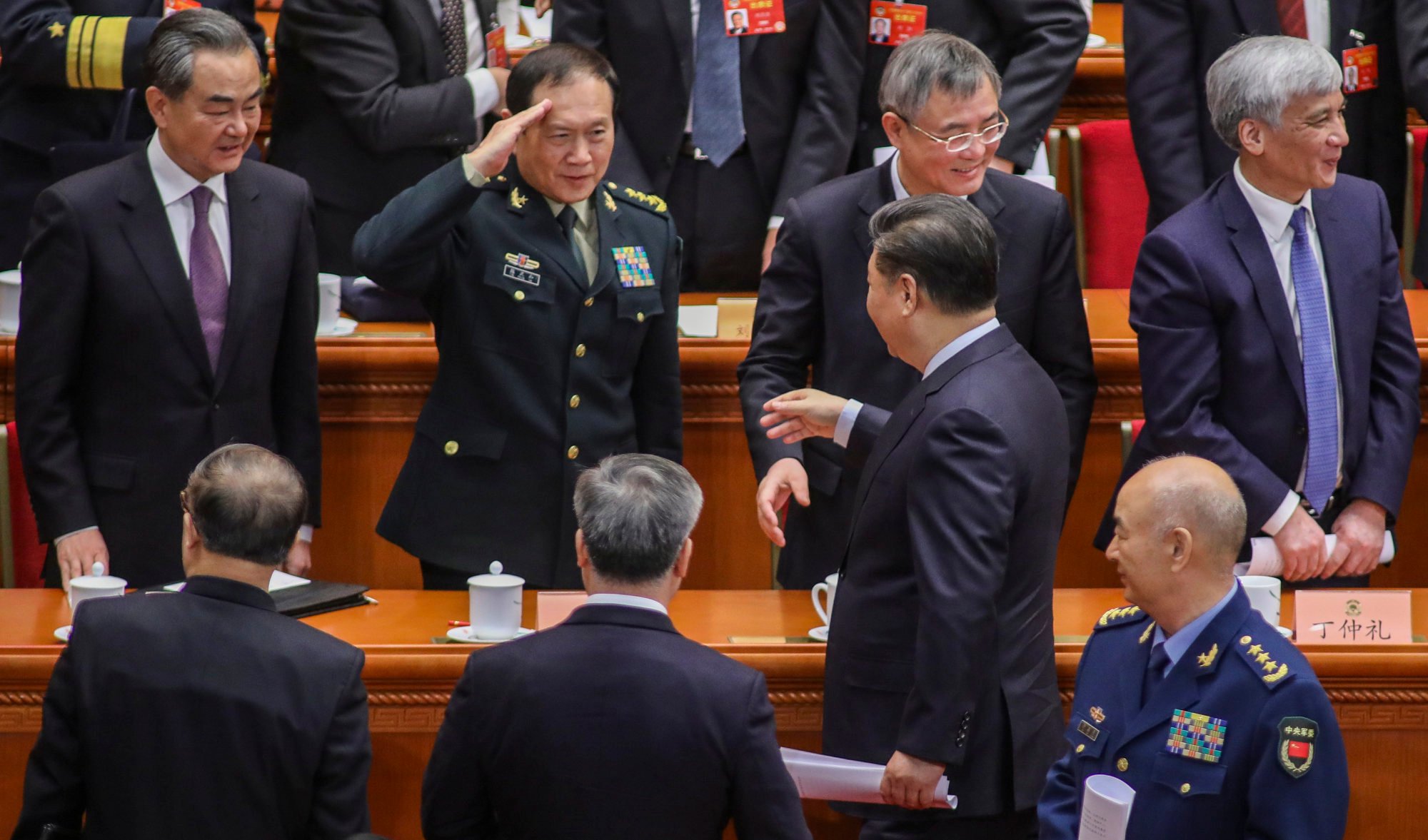
Chinese anti-corruption investigators target top PLA Rocket Force generals, sources say
- Military graft-busters are targeting the force’s current commander, Li Yuchao, and a past and present deputy, Zhang Zhenzhong and Liu Guangbin
- The force plays a central role in maintaining and deploying nuclear warheads as well as Xi Jinping’s plans to strengthen the country’s deterrence capabilities
Two sources told the South China Morning Post that the Central Military Commission (CMC)’s anti-graft body, the Commission for Discipline Inspection, along with its audit office have been investigating the force’s current commander Li Yuchao, as well as Zhang Zhenzhong and Liu Guangbin, his past and present deputies.

There have been no public announcements about any investigation into the trio, but they are believed to have been taken away by investigators.
Li, who was promoted to the party’s 205-member Central Committee in October, has been one of the force’s public faces.
He took a prominent role in the 2009 National Day parade to mark the 60th anniversary of the establishment of the People’s Republic, and a 2015 parade to commemorate the 70th anniversary of victory in the second world war.
China’s fight against corruption zeroes in on bribers with severe penalties
The investigation began some time after March, when Wei Fenghe retired as defence minister, according to one source, who spoke on condition of anonymity given the sensitivity of the topic.
Wei was the rocket force’s first commander, and was the first from the force or its predecessor, the Second Artillery Corps, to become defence minister. His appointment in 2018 was seen by many as a sign of Xi’s support for the force.
“Almost all the senior generals [in the rocket force] had good reputations before their promotion. They became immoral after moving to Beijing headquarters, allowing them to have more chances to engage with defence-related enterprises,” said one source, who spoke on condition of anonymity given the sensitivity of the topic.
After nearly six decades of development, China’s nuclear capability has significantly expanded, with its air, ground and sea-based delivery systems all being upgraded.

“The role of the rocket force is essential. The unit bears responsibility for assuring the safety of all strategic nuclear missiles, as well as deploying all the nuclear warheads to specific locations under the CMC’s instructions,” said Li Jie, a Beijing-based defence analyst.
As well as its role in the country’s nuclear deterrent, the rocket force is also an important element in Beijing’s efforts to ramp up the military pressure on Taiwan.
The military has been one of the main targets of Xi’s far-reaching anti-corruption campaign, which has now entered its second decade and has targeted hundreds of thousands of officials at all levels.
Shanghai legislation chief purged in China corruption investigation

